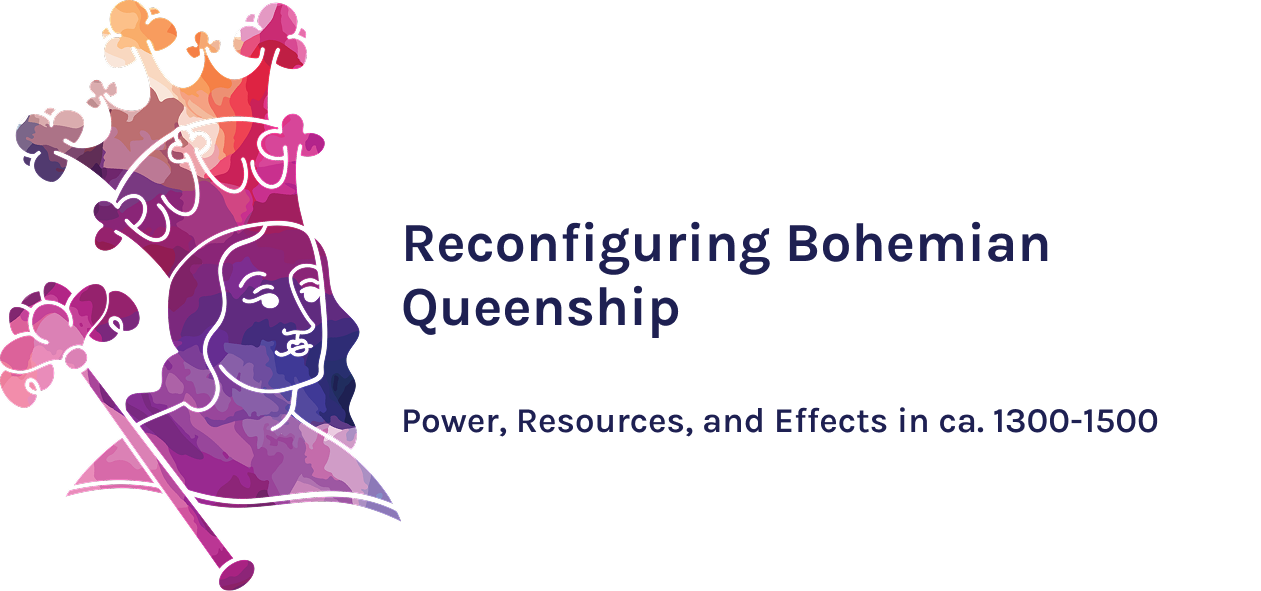
re·gi·na·li·ta, n. [reɡɪnalɪta], Cz. (Czech term for queenship)
It is the Czech translation of the original English term queenship. In scholarly discourse, it refers to the broader concept of kingship and the power role of royal women in medieval monarchies. It does not only refer to the legal status of the queen, but also to princesses, widows and other women associated with the ruling dynasty.
The Junior Star GA ČR grant project Reconfiguring Bohemian Queenship: Power, Resources, and Effects in ca. 1300–1500 aims to re-evaluate the position of Bohemian royal women and to clarify the quality and form of their power and influence, their resources and effects of their agency. Its goal is to analyse the female part of medieval power with respect to the male one and in a wider chronological and geographical view.
The research team comprises interdisciplinary scholars from different academic institutions who collaborate on various aspects of the Queen's power and influence. The project results will be published in peer-reviewed studies and other outputs. Current issues of the Bohemian Queenship will be discussed at national and international conferences and workshops. Links to further thematic projects, websites and related research can be found in the Resources. Follow the latest research activities, planned lectures and conferences on the News and Social Networks.
Queens, Noblewomen, and Burgher Women in the Middle Ages: Communication ~ Cooperation ~ Confrontation
International conference📅 16–17 October 2025📍 Academic Conference Center, Husova 4a, Prague / or online via Zoom The conference will explore the roles and agency of women in medieval society — from queens and noblewomen to townswomen. Download the program here. This...
Valar morghulis! 💀
All men must die – and queens were no exception. What is in the queenly testaments and what is missing? What were the most common legacies in the last wills? And what does it tell us about the way these women perceived themselves and wanted to be remembered? Patrik...
Mgr. Patrik Paštrnák, M.A., D.Phil.
Univerzita Palackého v Olomlouci
Katedra Historie Filozofické fakulty
585633229 | +421 902 835 078
patrik.pastrnak@upol.cz